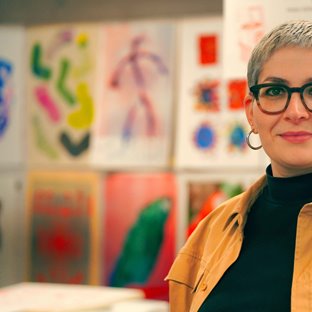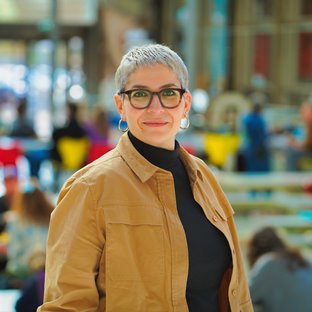What do we do?
In the context of social and economic inequality, global ecological challenges, and other urgent societal issues, education plays a central role in how young people learn to critically relate to their environment. It supports them in becoming resilient and adaptable, in creating space for counter-voices, and in developing new perspectives together. To learn and practice this, the educational system in which they themselves function as students is the crucial starting point. This system, too, has long been shaped by inequalities of power and persistent problems. It is here that the shared journey of exploration and development begins, involving students, teachers, staff, and the professorship’s researchers. .
The name Critical Creative Pedagogies encapsulates the professorship’s commitment to rethinking and transforming education through three interconnected lenses: criticality, creativity and pedagogy.
Critical refers to the need to engage deeply with the underlying power structures and historical contexts that shape contemporary education. In addition to acknowledging the genealogy of colonial violence, we also recognise how our knowledge and educational systems have long been embedded in gender inequality and economic power relations. This highlights the importance of critical reflection on how knowledge is produced, disseminated, and consumed. By scrutinising these dynamics, we aim to disrupt entrenched hierarchies and foster a more equitable and just educational landscape.
Creative underscores the unique position of HKU as an institution that trains creative professionals. Creativity here is not just about artistic expression, but also about innovative problem-solving and the ability to envision and create alternative futures. It is through creative research and practices that students can challenge dominant paradigms, explore new ways of knowing, and contribute to the development of a more sustainable and inclusive world.
Pedagogies signifies the active, dynamic, and plural nature of teaching and learning. Pedagogy is understood as an ongoing praxis—an intentional and reflective practice that shapes, and is shaped by, the interactions between educators and learners. The plural ‘pedagogies’ highlights our rejection of one-size-fits-all solutions in favour of multiple, diverse approaches. By embracing a multiplicity of pedagogical strategies, we create spaces where different identities, experiences, and perspectives can thrive, thereby fostering a richer and more inclusive educational environment.

